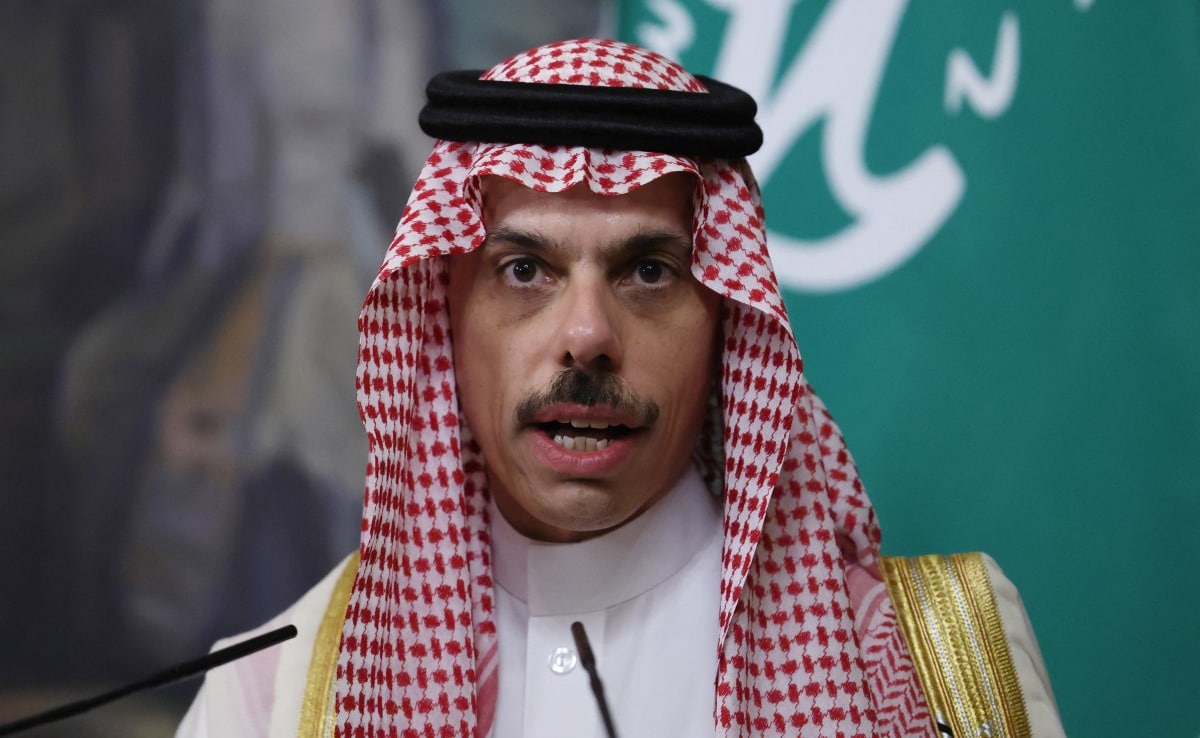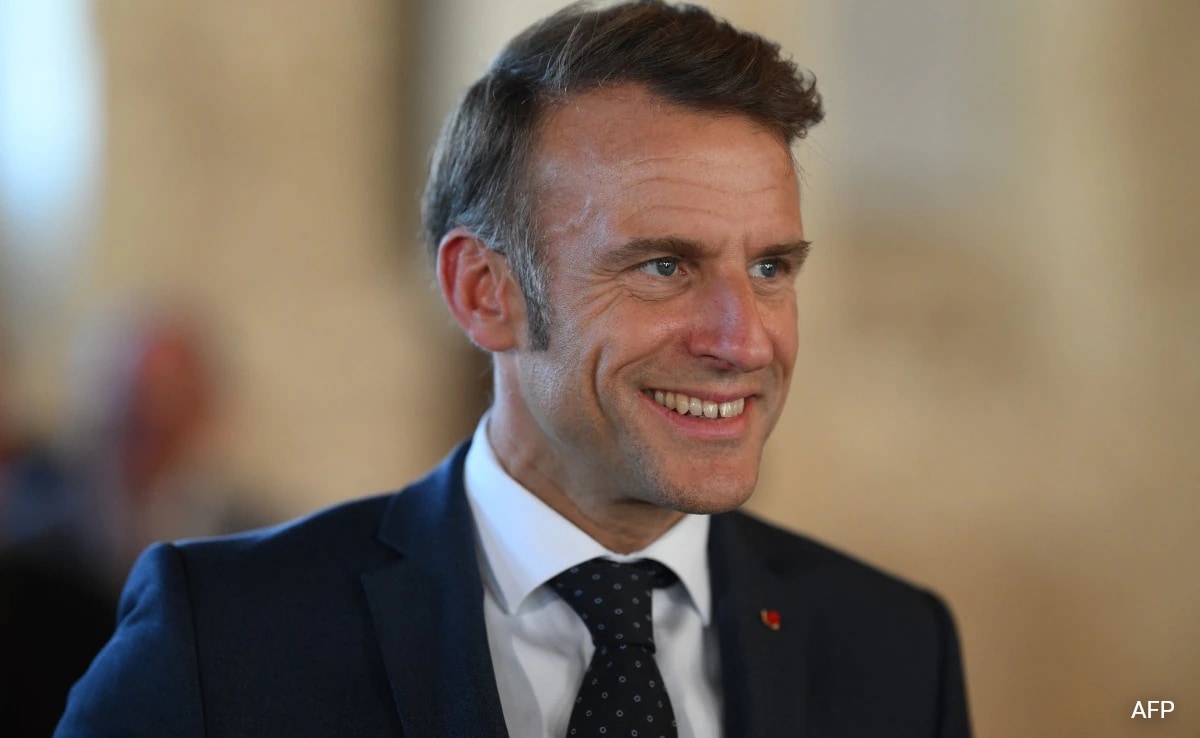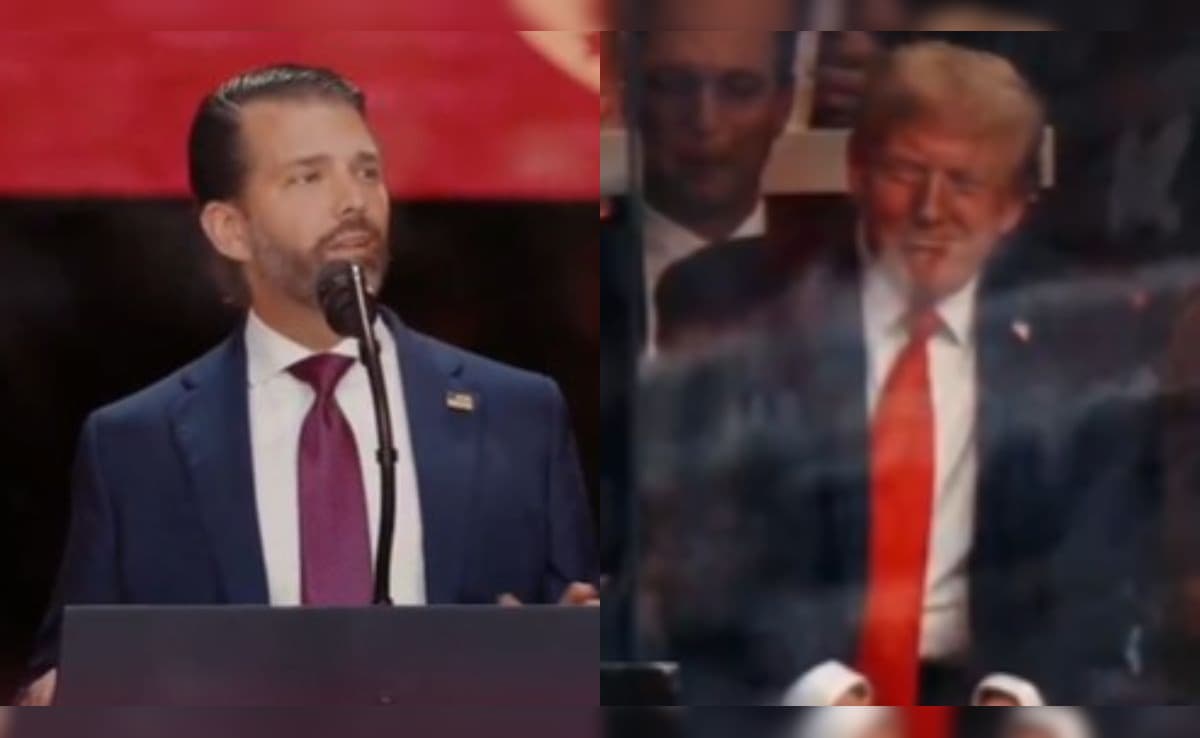The remarks come as Biden travels to Brussels on a trip meant to bolster Western alliances as Russia’s increasingly brutal invasion continues, and as NATO Secretary General Jens Stoltenberg announced plans deploy four more battle groups.
In Kyiv, a hail of rockets struck a residential neighborhood near the center of the capital. Makariv, a strategic town west of Kyiv that Ukrainian officials have said was retaken but is still contested in parts by Russian forces. On the country’s southern front lines, Ukrainian fighters in Mykolaiv have delayed a potential Russian assault on the critical port of Odessa, although interviews in the city illustrate the price paid in lives lost.
Here’s what to know
Russia warns sending international peacekeepers to Ukraine would be ‘reckless'
Return to menuRussia rebuked Poland’s proposal to send an international peacekeeping mission into Ukraine and warned that it would lead to dangerous consequences.
In a conference call with reporters Wednesday, Kremlin spokesman Dmitry Peskov warned that if pursued, such an initiative “would be a very reckless and extremely dangerous decision,” Reuters reported.
Peskov added that any possible contact between Russian and NATO forces “could have clear consequences that would be hard to repair.”
Russian Foreign Minister Sergei Lavrov also condemned the proposal Wednesday, arguing that it would lead to a “direct clash between Russia and NATO armed forces that everyone has not only tried to avoid but said should not take place in principle,” he said Wednesday in a statement to students at the Moscow State Institute of International Relations.
Russia’s warnings come after the leader of Poland’s ruling party, Jaroslaw Kaczynski, stressed last week from Kyiv the need for an international peacekeeping mission to be sent to Ukraine.
“I think that it is necessary to have a peace mission — NATO, possibly some wider international structure — but a mission that will be able to defend itself, which will operate on Ukrainian territory,” Kaczynski said during a news conference alongside Ukrainian President Volodymyr Zelensky.
Last Friday, Poland said it would formally submit a proposal for such a mission in Ukraine at the next NATO summit.
U.S. determines Russian forces have committed war crimes in Ukraine
Return to menuThe U.S. government has concluded that members of Russia’s military have committed war crimes in Ukraine, the State Department said Wednesday.
Secretary of State Antony Blinken said the new assessment is based in part on U.S. intelligence. He referred to the suffering of civilians in the city of Mariupol, where he said more than 2,400 noncombatants had been killed. He pointed to Russian strikes that have hit hospitals, schools, residential buildings and ambulances across Ukraine, including targets identified as civilian.
“Putin’s forces used these same tactics in Grozny, Chechnya, and Aleppo, Syria, where they intensified their bombardment of cities to break the will of the people,” Blinken said in a statement. “Their attempt to do so in Ukraine has again shocked the world.”
In recent weeks, U.S. officials had said that Russian actions appeared to be war crimes. President Biden called Russian President Vladimir Putin a “war criminal,” a remark that prompted the Russian government to summon the U.S. ambassador to deliver a protest. Blinken previously said he personally believed that war crimes had taken place.
In his statement, Blinken noted that a court would need to make a legal determination about the matter.
NATO: 7,000 to 15,000 Russian troops dead in Ukraine
Return to menuRoughly 7,000 to 15,000 Russian troops have been killed in four weeks of fighting in Ukraine, a senior NATO military official said Wednesday.
The official, who spoke on the condition of anonymity under NATO ground rules, said the estimate was based on several factors, including information from Ukrainian officials, what the Russian side has released and open sources.
NATO estimates that in total, 30,000 to 40,000 Russian troops have been killed, wounded or taken prisoner — a figure based on the assumption that for every soldier killed, three are wounded, the official said.
U.S. military officials have thus far been hesitant to discuss Russian casualty figures.
More than two weeks ago, on March 8, Lt. Gen. Scott D. Berrier, director the Defense Intelligence Agency, told House lawmakers that the best estimate is 2,000 to 4,000 Russian fatalities. He noted, however, that he had low confidence in the figure.
Belarus orders Ukraine to cut Minsk embassy staff, close consulate in Brest
Return to menuMUKACHEVO, Ukraine — Belarusian officials ordered Ukraine on Wednesday to drastically cut its embassy staff in Minsk and close its consulate in the western Belarusian city of Brest for what they said were “destructive actions” and “interference in Belarus’s internal affairs” by Ukrainians.
“Since 2020, the Belarusian side has recorded numerous unfriendly actions by Ukraine aimed at the irresponsible destruction of interstate relations with our country, business contacts and long-established ties between people,” said a statement by Belarusian Foreign Ministry spokesperson Anatoly Glaz, which was published on the ministry website.
The statement also said that Belarusian officials “were aware” of activities of “a number of embassy and consulate employees” that were “incompatible with diplomatic status.”
“This activity has increased,” the statement added.
In a response posted a short time later on Ukraine’s Foreign Ministry website, spokesperson Oleg Nikolenko said that 12 Ukrainian Embassy employees would have to leave Belarus within 72 hours. Ukrainian media reported that only Ambassador Ihor Kyzym and four staff members would remain.
“We consider such actions of Belarus as another unprovoked unfriendly step towards Ukraine,” Nikolenko said. “Ukraine will not leave the actions of Belarus without a proper response, which we will report about later.”
The diplomatic expulsions take place as Ukrainian and Western officials warn that Minsk could be preparing to send soldiers into Ukraine in support of Russia’s ongoing invasion. Belarusian officials deny any plans for an incursion into Ukraine.
WHO says it has verified 64 attacks on health-care facilities, patients and workers in Ukraine
Return to menuThe World Health Organization said Wednesday that it had verified 64 attacks on health-care infrastructure, patients and workers in Ukraine since Russia invaded nearly a month ago. Those attacks have caused 15 deaths and 37 injuries, the agency said.
“Attacks on health must stop,” WHO Director General Tedros Adhanom Ghebreyesus said at a news conference. “Health systems, facilities and health workers are not — and should never be — a target.”
The toll includes assaults on patients, health-care workers, facilities, infrastructure and ambulances. In one attack that drew global condemnation, an airstrike on a Mariupol maternity hospital initially left three dead and 17 injured.
Photographs of a pregnant woman being carried out on a stretcher became a symbol of the invasion’s toll on civilians. The woman and her baby died several days later, the Associated Press reported.
WHO officials denounced the situation in Mariupol, which has been cut off from food and other critical supplies. Tedros said that while 150 tons of medical supplies have been delivered to Ukraine, a humanitarian convoy was once again not able to reach the besieged port city.
Mike Ryan, executive director of WHO’s health emergencies program, said the impact on health goes beyond physical attacks.
“You have to place yourself in the situation many civilians find themselves in Mariupol,” he said. “It doesn’t matter if the hospital is open or closed. You are in a basement, you cannot move, you are stuck.”
He added: “That in and of itself is an attack on health care.”
Russia will ask 'unfriendly’ nations to pay for its gas in rubles
Return to menuPresident Vladimir Putin said Thursday that Russia will start forcing “unfriendly countries” including all European Union states and the United States — to pay for their natural gas supplies in rubles.
“I have decided in the shortest possible time to implement a set of measures to transfer payments — let’s start with this — for our natural gas supplies to the so-called unfriendly countries, into Russian rubles,” Putin said in a meeting with the government.
The changes come as Russia faces unprecedented economic pressure over its invasion of Ukraine, with international sanctions hammering the country’s banks, oligarchs and its currency, the ruble.
The announcement also means that other nations that have imposed sanctions on Russia, including Britain, Canada, Japan, Switzerland and Ukraine, will have to buy rubles with their euros or U.S. dollars at rates fixed by Russia’s central bank to pay for the natural gas supplied by Russia.
The move, which Putin said will be implemented within a week, could bolster the ruble by raising demand for it.
Putin announced that Russia would comply with the determined volumes and prices set in the existing contracts and that the changes will “affect only the payment currency,” Interfax reported.
“Unlike some colleagues, we value our business reputation as a reliable partner and supplier,” he said.
The Moscow stock exchange will partially reopen for trading in Russian stocks Thursday, nearly a month after it shut down.
Russia’s central bank said Wednesday that it will allow trading of 33 shares out of 50 included in the MOEX-s, the main ruble-denominated benchmark of the Russian stock market. Among the companies to be traded are state-owned Gazprom PJSC and Lukoil PJSC.
Photos: Post photographer Salwan Georges from Mykolaiv, Ukraine
Return to menuUkrainian troops in the southern front-line city of Mykolaiv have successfully been able to hold their ground. They’ve even been able to launch counterattacks to push back Russian troops. But all of that has come at a cost, with bodies accumulating in the city’s funeral homes, morgues and cemeteries.
Nestlé will continue selling ‘essential food’ in Russia despite criticism from Zelensky
Return to menuNestlé announced Wednesday that it would continue selling “essential food” such as baby food and hospital nutrition in Russia despite criticism from Ukrainian President Volodymyr Zelensky, who said the company’s sales were propping up Moscow’s attack on his country.
In a statement Wednesday, the world’s largest food company said that its remaining operations in Russia were not enough for it to turn a profit but that it would turn over any excess revenue to humanitarian relief organizations.
A spokesman told The Washington Post that it would halt Russian production and sales of products that are not specifically infant food or medical-grade nutritional products, cutting off the manufacture and distribution of pet food, coffee and confectioneries.
“This approach is in line with our purpose and values,” the company said in a statement. “It upholds the principle of ensuring the basic right to food.”
It also said it did not anticipate paying any taxes in Russia, which are due at the end of March, “for the foreseeable future.” The company said it had already stopped “nonessential” imports and exports into and out of Russia, and halted its advertising campaigns and new investments. It will continue to pay its employees in both Russia and Ukraine, a spokesman said.
Nestle has 5,800 employees in Ukraine, including at a noodle factory in the heavily-shelled city of Kharkiv. The company has shuttered the facility, but opened a distribution center in the city to provide food to sheltering residents. Nestle, the spokesman said, is delivering 60 percent of its pre-war volume in Ukraine.
The company behind such brands as Gerber baby food, KitKat wafers and Nesquik syrup had previously pledged to sell only baby foods, cereals and certain high-nutrition or therapeutic pet foods in Russia.
In an address Saturday to the people of Switzerland, where Nestlé is headquartered, Zelensky upbraided the company for refusing to pull out completely from Russia, saying its presence there undermined Western economic sanctions and helped sustain Russian President Vladimir Putin’s invasion.
“ ‘Good food. Good life.’ This is the slogan of Nestlé. Your company that refuses to leave Russia,” Zelensky said. “Even now — when there are threats from Russia to other European countries. Not only to us. When there is even nuclear blackmail from Russia.”
Western corporations are under tremendous public pressure to leave Russia amid the humanitarian crisis enveloping Ukraine. At least 400 foreign corporations have pulled out of Russia. Putin has threatened to nationalize the assets of firms that leave the country because of the war.
Other food producers have opted to remain in Russia in a limited capacity. PepsiCo and Mondelez, the brand behind Oreo cookies, Ritz crackers and other snacks, maintain that they do not want to withhold food and beverage staples from ordinary Russians. Both have pledged to stop making and distributing certain luxury items in Russia, including soft drinks, cookies and candy.
Anatoly Chubais, Putin’s envoy on sustainable development, quits and leaves Russia
Return to menuAnatoly Chubais, one of the few Russian reformers of the 1990s who survived through Vladimir Putin’s presidency, quit his post as sustainable development envoy, the Kremlin confirmed Wednesday, becoming the highest official to sever ties with the Kremlin after the invasion of Ukraine.
Amid reports Chubais left the country because of his opposition to the war, Kremlin spokesman Dmitry Peskov said Chubais had resigned but did not confirm he had left the country.
“Yes. Chubais resigned of his own free will. But whether he left or did not leave, that’s his business,” Peskov told Interfax.
Ruslan Edelgeriev, Putin’s representative on climate issues, earlier confirmed Chubais’s resignation in comments to RIA Novosti, while Kommersant newspaper reported he had been spotted in Istanbul.
Bloomberg News, which first reported the story, said Chubais left because of his opposition to Russia’s war against Ukraine. Forbes’ Russian office managed to reach him by phone, but reported that he cut the call when asked whether he left the country.
Last week, Chubais hinted at his opposition to the war in a Facebook post commemorating the death of Yegor Gaidar, an economist and politician who led Russia’s “shock therapy” program aimed at liberalizing Russia’s economy in the early 1990s. Gaidar died suddenly in 2009, at age 53.
“In our discussions about the future of Russia, I did not always agree with him. But it seems that Gaidar understood strategic risks better than I did, and I was wrong,” Chubais wrote.
Chubais’s spouse, Avdotya Smirnova, signed an open letter from philanthropists opposing the war last month.
The architect of Russia’s privatization program in the 1990s, Chubais reportedly gave Putin his first Kremlin job in 1997 and supported his rise to power.
Chubais is a controversial figure amid ordinary Russians, many of whom see the privatization program as having stripped Russia of its prize assets and enriched a small group of oligarchs.
Zelensky says French companies that are still in Russia are ‘sponsors’ of invasion
Return to menuPARIS — In an address to the French parliament Wednesday, Ukrainian President Volodymyr Zelensky urged all remaining French companies to pull out of Russia, calling them “sponsors” of the invasion of his country.
“Renault, Auchan, Leroy Merlin and others need to stop being sponsors of Russia’s war machinery,” Zelensky told French lawmakers in a special session of parliament. “They must stop financing the murders of children and women.”
A number of French companies have appeared more resistant to pressure to cease operations in Russia in response to the invasion of Ukraine than some of their American and European competitors.
.png)











 English (United States) ·
English (United States) ·  Turkish (Turkey) ·
Turkish (Turkey) ·